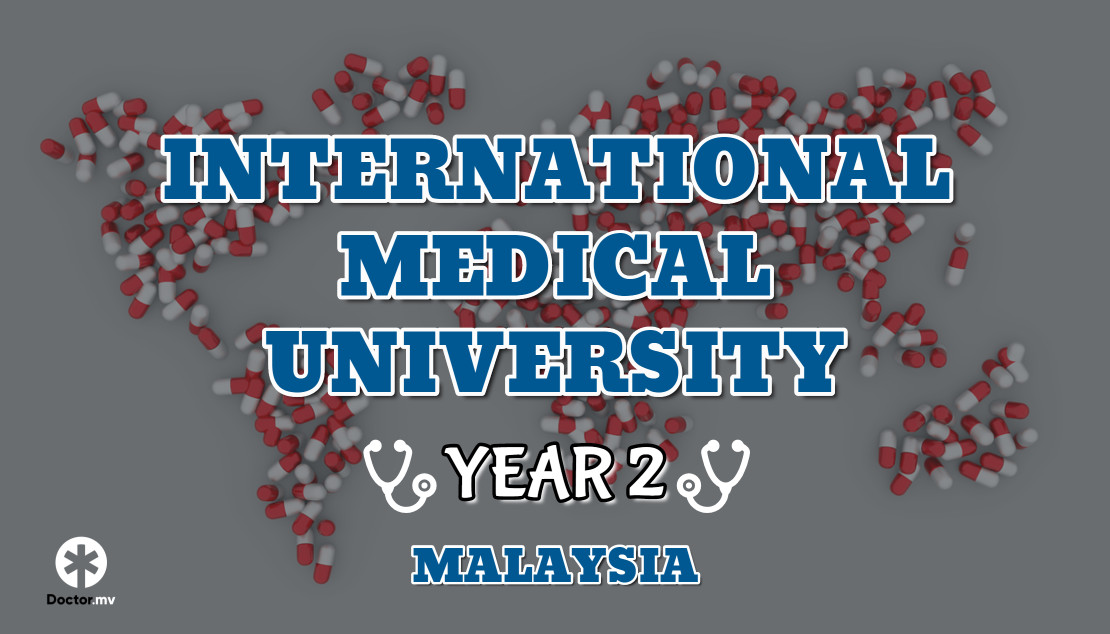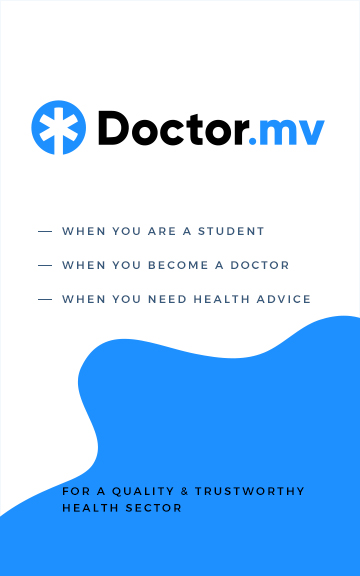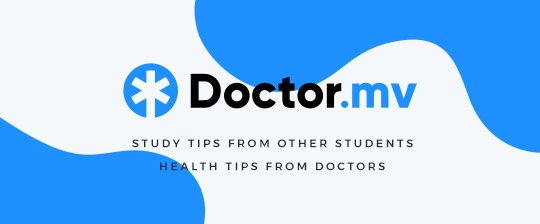I'm REEMA MUJTHABA and this is My Medical Student Life

Nabeel Ibrahim
Published on: 25/09/2018
Malaysia Second Year International Medical University Reema MujthabaUniversity: International Medical University (IMU)
Current Year: Second
Medical Specialty Interested in: General Surgery
Most Inspiring Person: My Mom
Single Quality that defines a great Doctor: Empathy
First of all, walk us through the step-by-step processes that you went through to get to where you are today?
I completed my Secondary school education in Aminiya School. I joined CHSE for my A'levels. After graduating, I applied for the student loan. While waiting to hear back from them, I decided to apply for some jobs. I got the job as a Clinical Assistant for Medica Hospital. At Medica, there aren't many doctors that require a Clinical Assistant hence, most of the time I worked with 2 ENT Doctors. I learned quiet a lot, especially from one of them since I had to do a lot of work while I was with him.
While working at Medica, I got the chance to apply for a Clinical Assistant's position at IGMH. I thought it would be a good idea to work there since I would get more experience. I applied and got the job.
Initially, I was working both jobs because I could not quit Medica immediately. It was tough, however, I'm glad I worked at Medica, because in IGMH I did not get the opportunity to work with an ENT Doctor. Before I joined IGMH, Clinical Assistant rotate between departments, however, by the time I joined they changed the policy. Clinical Assistants were made permanent to a department and I was posted at the Orthopedics department.
Working at the Orthopedics department was very enlightening. There were only 2 of us that were permanent there and all the doctors were very nice. We would have to work in the Out Patient Departments (OPDs), in the morning and evening. I learned a lot there. For example, how to speak with patients, especially in formal Dhivehi.
I worked at Medica Hospital for 5 months and at IGMH for 7 months.
Afterwards, I applied to International Medical University (IMU). I applied on my own, since I heard it was cheaper this way. It was super easy to get in. However, it was taking quiet some time for my loan to get finalized, but IMU was very accommodating. They waited until I got the loan to pay for my semester fees.
When did you first realize you wanted to study medicine?
Honestly, when I was a kid I always hated the idea of becoming a doctor. I told everyone that I would never be a doctor.
I had an aunt who wanted to become a doctor, ever since she was little. By the time I finished my O'levels, she had already finished her A'levels and joined ADK Hospital as a Clinical assistant. Every day after her work, she would come home and tell me all the details, cases and patients she met. As a result, I gradually got interested in Medicine.
I still wasn't sure about Medicine when I joined CHSE. I took all the general subjects; Biology, Chemistry, Physics and Mechanics. This way I can have a broader range of choices for a career. In the middle of 11th grade, me and my best friend Shaara were discussing our options for studying further. We didn't have a specific choice, but were both interested in becoming a doctor. That interest increased for both of us as our A'levels went on, and we have been holding onto it ever since.
Take us through a typical study day.
Since I am in the second year, it's not too busy yet. We study by systems for now, and after each system we have an exam. I just finished my Gastrointestinal tract (GIT) system exam and am studying the Renal system now.
I would say I am a procrastinator, so I don't have a specific study schedule. At the beginning of the system, there isn't much content so I necessarily don't spend much time studying during the week. I attend the lectures and I get as much information I can from that. By the time it gets to the middle of the syllabus, everybody is studying seriously.
I generally sleep late, around 2 or 3 am, since Male' is 3 hours behind. I do wake up for Fajr, but I'm not a morning person and don't study in the morning. So I go back to sleep and wake up around 10 am, depending on the Timetable. After breakfast, I would walk to class since I live really close to the University building. During the lunch break, I go back home to cook and have lunch with my friends. Most of the time we have classes afterwards. I would study after my classes are over in the evening.
On some days, we have clinical skills, and classes start at 8 am. Otherwise, generally, classes start at 10:30 am, but there are days where classes start at 8 or 9:15 am. We get a 15 minute break between classes and we always have a lunch break.
How do you stay motivated to study?
I see my housemates and friends studying all the time. Hence, I too feel the pressure to study.
Even though I am a procrastinator, I procrastinate to a level I know I will be able to catch-up to. By the time we reach the middle of the module, I know how much there is to study, so I go through them before I get completely lost.
Finally, when there is a week left for the exam I start studying hardcore. I don't have much time for anything else by that time.
What are some of your favorite online resources/tools?
IMU provides a United States Medical Licensing Exam (USMLE) website that is already included in our semester fee. Sometimes, if the lectures and notes provided to me are not enough I use this website.
When it comes to medical skills, there is a website called Geeky Medics, which I use.
Recently, I've started using an app called Flora, to help stop the use of my phone all the time.
Name your favorite medical text book.
Robbins Basic Pathology.
Why do you think becoming a doctor is important?
Becoming a surgeon, became a dream after hearing all the stories and working as a Clinical Assistant.
Here in IMU, the course is very patient-based. They teach you a lot about communication, ethics and patient interaction. I think empathy is a quality every doctor should have. I've had experience with some doctors that are not as empathetic as you would want to be. If you are a patient, you are not necessarily going to the hospital to get treatment alone. You would want some empathy as well.
For me, I think it's important to become an empathetic doctor as well as having good skills.
What do you know now that you wish you knew when you first started medical school?
Not necessarily, I haven't come across anything as such, to be honest.
However, I do wish I took my language classes a bit more seriously. Most of the time when we go for clinical visits, we have to rely on a local student to speak for us, since many don't know English. That is a bit of a difficulty but it's not that big of an issue.
The one thing I wish I retained was the medication names that I had to type out as a Clinical Assistant. Many of the medications we study now, are those same ones. If you are working in a medical environment, try to gain as much knowledge as you can. So many things that I'm learning now, I remember from the time I worked in the hospital. I wish I tried to dig up more since it would be easier now in Medical school.
What do you think needs to change in the health industry of the Maldives today?
So many (both doctors and patients) are quick to judge, point the finger and lay the blame on a person if they make a mistake. Especially, in the medical industry. Say, a person made a mistake and it lead to a demise of someone.
We were made to take course here in IMU about mistakes. It's not necessarily one person's blame to take, and we shouldn't point fingers at a a person and say 'This person did that' or 'Because of him/her this has happened'. I think we should try to be proactive about things that could happen. For example, if someone accidentally gave a patient the wrong dose of the medication, we should try to educate everyone more rather than blame or fire the person.
There could be a lot of things that could align up for a mistake to occur. This happens in other industries as well, for example the piloting industry. This is something I think should change. This mindset needs to change. Blaming and judging ruins the one person's career. So many make mistakes. A lot of the time we get a label that we were lucky something did not go wrong, but sometimes some people are not too lucky.
Finally, what is the one tip/advice you want to give to our readers?
Even if you take a gap year, try to work on your application and documents for the university, as soon as you finish your A'levels or O'levels. It's great to work and get some medical knowledge, but also try to be proactive and make use of your time.
I wasted a lot of time on my application process. I could have joined University 6 months earlier if I started working on it sooner. Even if you're working or even if you plan to leave 6 months later, try to work on it right after A'levels. Time is important, especially if you're doing a long degree.
Finally, always try to find more information, especially while you're working. Read a little more on Anatomy and the other subjects before you start Medical School.
The My Medical Student Life series was created for the sole purpose of helping medical students and aspiring doctors on their journey to become a successful Maldivian Healthcare Professional. Have a suggestion, idea or question? Email us.



Leave a comment
0 Comments